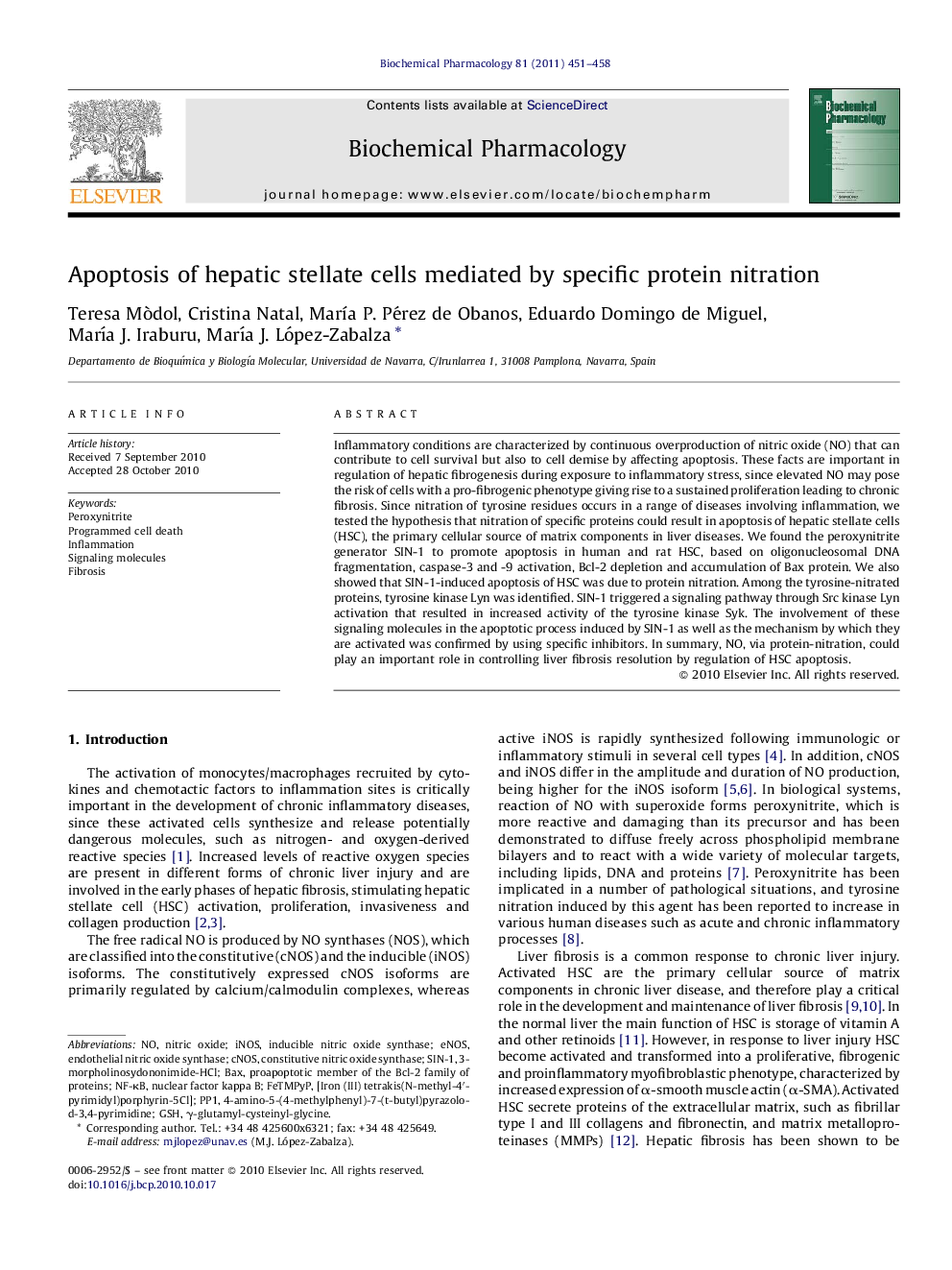| Article ID | Journal | Published Year | Pages | File Type |
|---|---|---|---|---|
| 2513178 | Biochemical Pharmacology | 2011 | 8 Pages |
Inflammatory conditions are characterized by continuous overproduction of nitric oxide (NO) that can contribute to cell survival but also to cell demise by affecting apoptosis. These facts are important in regulation of hepatic fibrogenesis during exposure to inflammatory stress, since elevated NO may pose the risk of cells with a pro-fibrogenic phenotype giving rise to a sustained proliferation leading to chronic fibrosis. Since nitration of tyrosine residues occurs in a range of diseases involving inflammation, we tested the hypothesis that nitration of specific proteins could result in apoptosis of hepatic stellate cells (HSC), the primary cellular source of matrix components in liver diseases. We found the peroxynitrite generator SIN-1 to promote apoptosis in human and rat HSC, based on oligonucleosomal DNA fragmentation, caspase-3 and -9 activation, Bcl-2 depletion and accumulation of Bax protein. We also showed that SIN-1-induced apoptosis of HSC was due to protein nitration. Among the tyrosine-nitrated proteins, tyrosine kinase Lyn was identified. SIN-1 triggered a signaling pathway through Src kinase Lyn activation that resulted in increased activity of the tyrosine kinase Syk. The involvement of these signaling molecules in the apoptotic process induced by SIN-1 as well as the mechanism by which they are activated was confirmed by using specific inhibitors. In summary, NO, via protein-nitration, could play an important role in controlling liver fibrosis resolution by regulation of HSC apoptosis.
Graphical abstractFigure optionsDownload full-size imageDownload as PowerPoint slide
